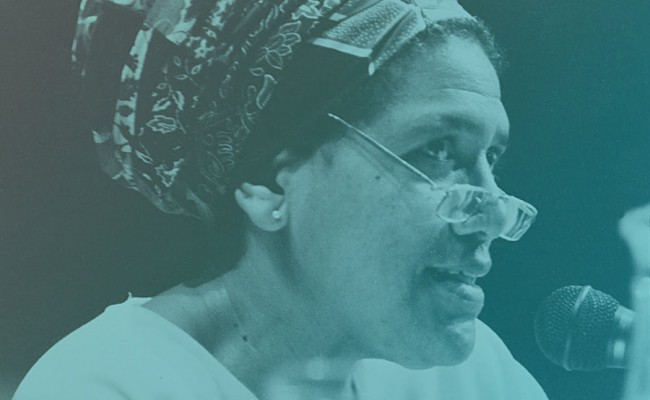The slippery path of re-enactment is fragile in terms of ethical responsibility towards previous generations unable to present their own case.
– Julie Gough, ‘The Ranger’, 2007
When I’m asked why I write poetry, what drives my writing, my answer usually settles on notions of responsibility that are not straightforward or easy to define. It can be a cathartic-compelling, a way of processing and responding to unexpected triggers, or reading and experiencing the work of others.
‘When you’ve got art you’ve got voice. And when you’ve got voice you’ve got freedom,’ Gunditjmara filmmaker, musician and activist Richard Frankland reminds me. ‘And with freedom comes responsibility.’ As a Narungga woman born and living on Kaurna country, my writing is largely underpinned with a sense of acknowledgment and accountability. I think about my ancestors’ history of forced movement and confinement, how hard my family worked so I could speak freely.
‘Are you being responsible with your freedom?’ Frankland asks.
Trawlwoolway artist, writer and curator Julie Gough’s contemplation above on the fragility of representation, and ethics of retelling history, is a resonant reminder of the voices I engage with that are not my own. These voices are sometimes active, sometimes loud or silent; they are disagreeable and force me to listen, and sometimes they rest. These are the voices that keep me alert, that stop me in my tracks, that guide me through my imperfections toward some kind of peace and contentment in how I represent stories and ideas.
Dr Anita Heiss, Dr Peter Minter, Dr Sandra Phillips and others have contributed greatly to the field of Indigenous literature research in Australia, and many writers are compelled to tell and retell personal and shared histories in as many ways as possible; a responsibility to write critical counter-narratives to ‘truths’ we are fed.
For Choctaw-Cherokee writer and scholar Louis Owens, the whole point of contemporary Native American writing is to demonstrate that the 500-year project of erasure has failed. Indigenous writers have a responsibility, Owens argues, to continue the stories, including those displaced from traditions through colonial disruption: ‘Those stories, too, must be told. For stories are what we carry with us through time and across distance.’
This obligation to retell is echoed by Muscogee poet and author Joy Harjo, who speaks of the ‘responsibility of remembering’; of the need ‘to continue the stories, to write and tell what we know, whether they are stories of growing up on country with community, or stories of displacement, loss and survival.’
Bidjara/Birri-Gubba Juru historian and leader Dr Jackie Huggins refers to the ‘mapping of stories’ and the potential of collective Indigenous narratives to form new ‘institutions of memory’. My intimate relationships and experiences of self are a product of such mappings; they are interdependent and nonlinear. Collective memories, histories and connections to country extend beyond my immediate family and, through a kind of temporal rupturing, beyond the present.
Cherokee scholar and writer Daniel Heath Justice describes something similar: a sense of belonging through relationship to place, and woven into the fabric of the land on which you live and work, particularly its colonial and cultural legacies. This is a resonant theme for many Indigenous writers, and was theorised by the late Standing Rock Sioux writer, historian and activist Vine Deloria Jr as ‘critical relationality’. Such relationality, argues Goenpul and Quandamooka Distinguished Professor Aileen Moreton-Robinson, is learnt through ‘reciprocity, obligation, shared experiences, coexistence, cooperation and social memory’.
For African-American warrior woman, poet and activist, Audre Lorde, ‘poetry is not a luxury’: the very act of writing is vital to existence and provides a way to transform dreams and hopes into action. To write with such raw intent ‘toward survival and change’ is empowering; it involves imagining and enacting hopeful futures here and now, as well as on ‘the farthest horizons’. Lorde’s emphasis on transforming ideas into ‘more tangible action’, infused with Gough’s responsibility for those ‘previous generations unable to state their case’, underpins and shapes my work.
Heath Justice also refers to the responsibility of ‘not knowing’, and honouring those mysteries that both connect and distinguish us; to respect the silences and recognise when and where to tread lightly, if to tread at all.
I am not surprised that many of my first-year university students admit to ways of ‘knowing’ Aboriginal people that are steeped in resounding colonial myths and stereotypes. For migrant and international students, such racialised thinking is often perpetuated within their own communities. The semester’s road toward transformation is long, and Indigenous-led resources are crucial. Tony Birch’s article ‘The Invisible Fire: Indigenous Sovereignty, History and Responsibility’ is particularly resonant. In it he refers to the important work of Professor Joseph Pugliese, who advises migrant communities to ‘do their homework’ in order to actively disrupt the colonial relations of the past; to not be ‘complicit agents in the reproduction of contemporary colonialism’. Birch calls for an ‘active stance of anti-colonialism’; for Indigenous and migrant communities to recognise commonalities, forge alliances and refuse the status of marginalisation in order to become ‘a genuinely post-colonial nation’.
In the same vein, Wiradjuri elder, poet and activist Kerry Reed-Gilbert’s book The Strength of Us as Women is a clarion call for responsibility through such critical relationality. She drives a direct challenge to non-Indigenous readers to understand multiple ways of belonging; to act and engage in the political struggle with Indigenous Australians. ‘Responsibility is learning this country, sharing the stories. Sharing the pain, the hurt. Sharing the untruths,’ she writes. ‘Who’s responsible? You are. If you call this country home, you are.’
Read the rest of Overland 226
If you enjoyed this piece, buy the issue




